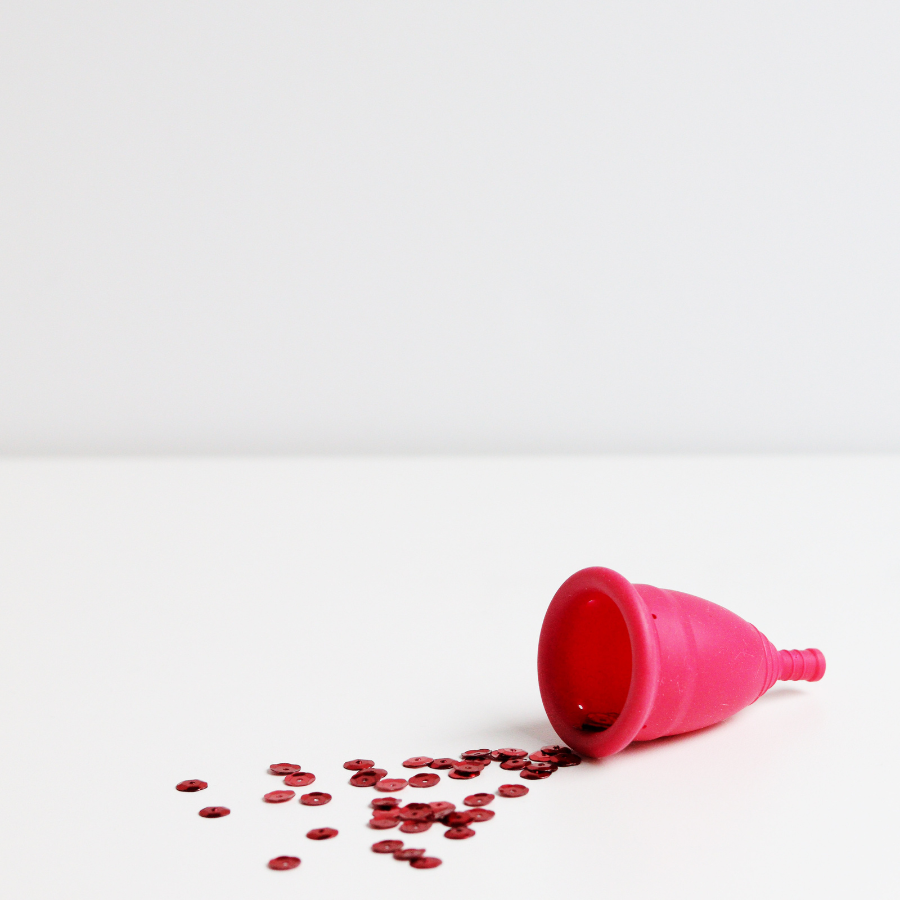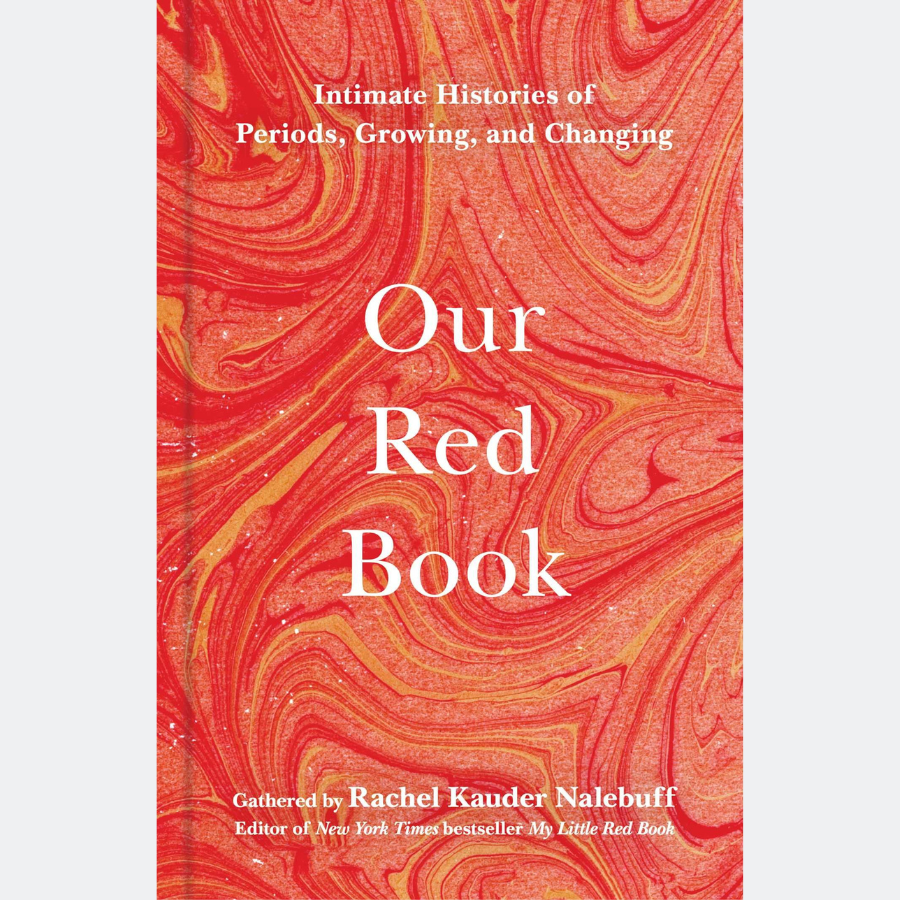For over eight years, I didn’t menstruate. First, because I was pregnant. And then, because I got an IUD.
Lemme tell you, I loved having that IUD. Suddenly, I no longer had to deal with heavy flows, heavy cramps, and poop problems. Period? What period? Sure, I was completely disconnected from the inner workings of my body, but that was a small price to pay for a period-less existence, and the peace of mind I received from knowing I would not have an unplanned pregnancy.
I do know that IUDs are not right for everybody. I know they have a troubled history, and that some people have had negative experiences with them.
But for me, living with an IUD inside me was a dream.
About a year and a half ago, I had my IUD removed because it was past its expiration date. Within two days of its removal, I had my first period in over eight years. I felt immediate regret. I had forgotten just how much I hated menstruating. After a month of hemming and hawing, I applied to receive a new one. Before my request could be processed, however, I began menstruating again… just in time for a long weekend trip down the shore with my family.
In the past, pre-pregnancy, I would have just used tampons. For some reason, however (vaginal atrophy?), they were no longer comfortable and were, in fact, painful to remove, no matter which absorbency level I tried. I considered rush-ordering period panties. A full-on period bathing suit. But the only thing I could track down before our trip was a box of disposable period underwear at my local Target.
And then, on a whim, I also overnight ordered my very first menstrual cup.

Using it was like magic. During our trip, I raved about my new menstrual cup to my husband and child. In the weeks following, I raved about it on Instagram, of all places. I eventually learned about resources like Put a Cup in It, where you can take a quiz to find the right cup for you and check out a slew of reviews for different types of cups. I think what I loved about my menstrual cup was the sense of power and control it gave me. Again, no one form of birth control or menstrual care is right for everybody. But it seems that at this point in my life, menstrual cups are just what I need.
It’s amusing to me that as I try to prepare my 8-year-old for the changes that will soon happen in her body, my own body is still changing, and I am finding that there still are new things to learn.
But these discoveries are less accessible to a large swath of the population when period talk remains taboo, when menstruation is considered a source of shame, when period products are difficult to come by, and when certain forms of both contraception and period products are criminalized and/or regulated.
That first roadblock, at least, is addressed in Our Red Book, a collection of period stories gathered by Rachel Kauder Nalebuff.
The Power in Our Period Stories
Not everyone is as forthcoming as I am when it comes to their reproductive health, their sex life, their vibrator collection… you know, all the stuff about which we’re supposed to shut our damn mouths.
But maybe they should be?
As I flipped through Our Red Book, I was fascinated by the stories Nalebuff had gathered. There was a graphic essay by cartoonist Trinidad Escobar on her relationship with menstruation over her lifetime. There was a poem by author Tanaya Winder on what we are taught about our bodies and the changes they undergo. There was a conversation with a group of high school students who distribute free period kits to those in need.
I could go on. I dog-eared so many pages.
What these stories highlighted for me is that there are so many ways for us to experience our periods, some of them empowering, some of them bothersome, and many of them somewhere in between.
But when so many of us are taught to remain silent when it comes to our periods — when we are taught that periods are dirty and shameful — we don’t know how to place our own experiences within the context of the wider world. We are frightened when it happens because we don’t know what it is. Or we know what it is, but we don’t know what to do. Or we experience something and we don’t know whether or not it’s “normal” or a possible source of concern.
As I made my way through Our Red Book, I read a piece from Drew Pham, a queer, transgender woman of Vietnamese heritage who wrote about how it feels to be unable to menstruate. And I read a piece by artist Shira Grabelsky, who wrote about periods in the context of disability and dependence. And I read a poem by Somáh Haaland, a queer Indigenous artist and community organizer, who wrote about starting as someone who did not know what their period was and growing into someone who could be proud of all the things they would someday create with their body.
And I felt gratitude for having access to their stories and it occurred to me that, though I’d assumed I didn’t have a period story worth telling, maybe I did. And maybe it didn’t matter that my story takes place when I am already 40.
Why We Need to Continue Telling Our Period Stories
I once wrote a piece about how to normalize talking to your kids about periods. I wrote it because severe gaps exist in our knowledge as it relates to our bodies due both to subpar sex ed and to the fact that caring adults continue to feel too scared and embarrassed to have these conversations. We often wait too long to teach kids about menstruation, though some kids can begin menstruating at the age of 8. Or we use fear-based language to refer to the changes that can happen during puberty.
But as sexuality educator Melissa Pintor Carnagey told me, “It’s all about normalizing the diversity of experiences of the body.”
I think this can apply to folks of any age.
But this is only one reason to start blabbing about your period.
I think we also need to raise awareness of all the barriers to access that exist when it comes to menstrual care. Barriers like taxes on menstrual products. Barriers like a lack of information about the options that exist when it comes to menstrual care. Barriers like period poverty, which refers to inadequate access to menstrual hygiene tools and education.
If you’re interested in working in support of menstrual justice, I recommend you check out the work of organizations like:
The following books might also prove illuminating:
- Period Power: A Manifesto for the Menstrual Movement by Nadya Okamoto, illustrated by Rebecca Elfast
- Period. End of Sentence.: A New Chapter in the Fight for Menstrual Justice by Anita Diamant
- Periods Gone Public: Taking a Stand for Menstrual Equity by Jennifer Weiss-Wolf
- It’s Only Blood: Shattering the Taboo of Menstruation by Anna Dahlqvist, translated by Alice E. Olsson



Pingback: Our Red Book and the Power in Our Period Stories - Guerrilla Sex Ed
This is such an important topic that we just don’t talk about enough. My dream is for my daughters (10&12) to understand the changes in their body and be in touch with the feelings I was never even taught about, and then lost touch with after 15 years of oral contraception. My 3yo son is going to learn about periods, too (and has already started, as of course he follows me to the bathroom and has seen me dump my cup a thousand times by now.)
Thanks for writing this! Picking up the book now!